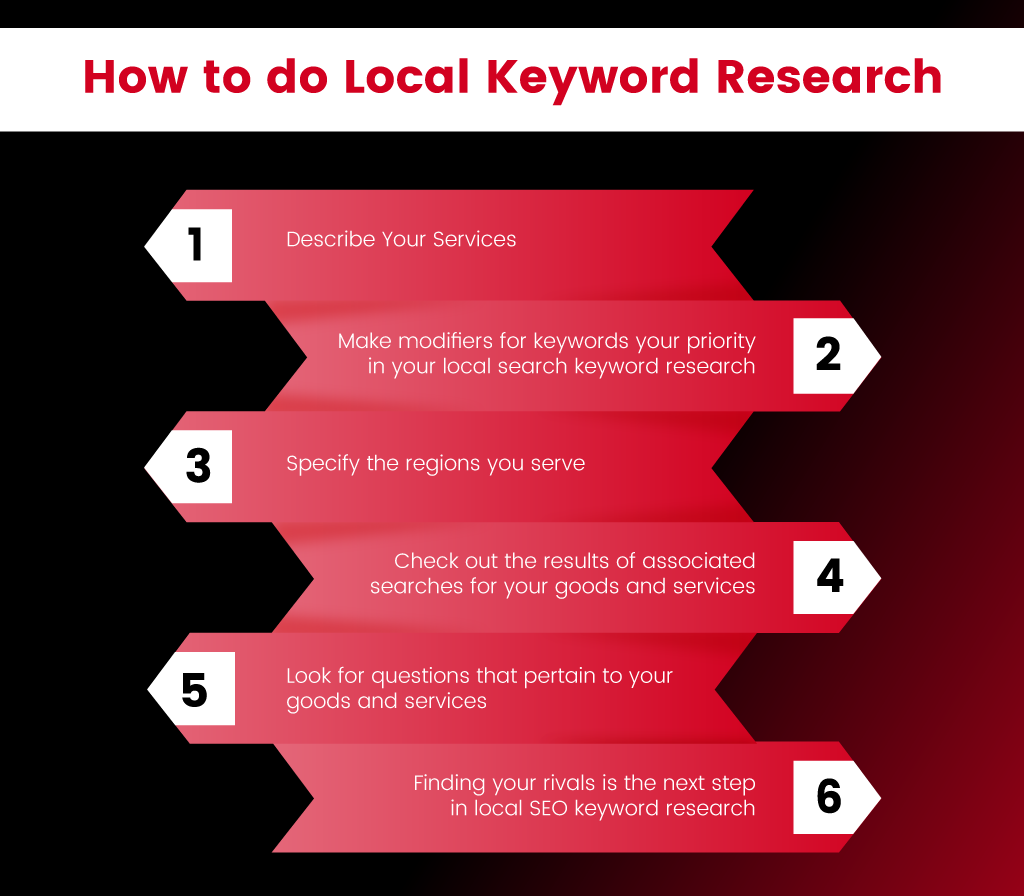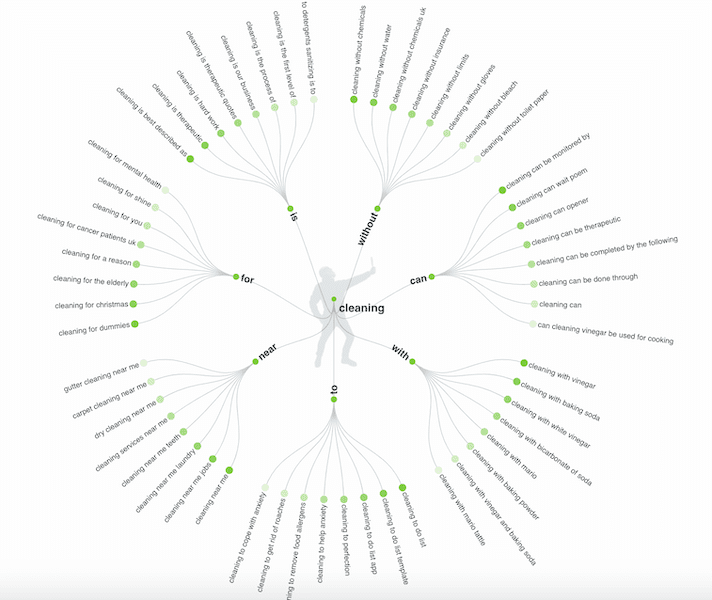A Complete Step-by-step Guide on Local Keyword Research
- zuppmedia
- 0 Comments
Hey there! If you are searching for how to do local keyword research and you found this article -then this is a must-read for you. Just because you’re having trouble figuring out which keyword research for local SEO is the most important for your company to rank in Google’s search results. We are here to help:
Well – before starting to discuss how to do local keyword research, here is a statistical fact that will make you believe how vital local keyword and local SEO is to your business.
Did you know that of those who do a local business search on their cellphones, 76% end up visiting that establishment the same day?
Or that 28% of people who do these searches buy anything because of it?
Therein lies the strength of local search engine optimization and keyword research for local businesses. It would help if you choose the correct keywords for your company to rank higher for competitive keywords associated with your product and sector.
Local searches may provide smaller search numbers, but they are more likely to bring in qualified visitors ready to buy. Customers need to be able to quickly and easily locate your brick-and-mortar store using Google and other search engines.
Understanding The Concept of Local Keyword Research
Let’s get the fundamentals out of the way first. The local keywords you target are the building blocks of any local SEO campaign.
To improve your website’s visibility in search engines like Google and Bing, it’s a good idea to focus on a few carefully chosen keywords. For example, “local keyword” refers to a keyword adapted for use in a particular region.
Doing localized keyword research is how you discover which terms will be used in your local SEO campaign.
Local search engine optimization keyword research combines science and art, much like marketing. It will help if you put in the legwork (the scientific portion) to identify and comprehend the terms to base your approach on and then use them in novel ways across your website and written materials.
Exactly what do We mean by “Local Keywords?”
To rank higher in Google search results for a given geographic region, you’ll want to focus on what is known as “local keywords.” You use them as the foundation for your analysis, strategy, and optimization. Pick ones that people in your target market are likely to enter into Google (or another search engine) while seeking products or services like yours.
We’ll provide an example to illustrate why localized keywords always need to have a specific purpose in mind.
Mumbai dentist, Thane lawyer, London roadside help, Delhi home movers, a nearby restaurant, etc. are all examples of local keywords.
You need not always refer to specific locations by name. With your device’s location services turned on and the phrase “restaurant” in the search bar, Google will provide results for nearby eateries that meet your criteria.
The most important thing to remember is that if you optimize your website and Google business profile for relevant keywords that include a location, like “dentist Mumbai,” you will reach a far wider audience and more potential consumers.
Local SEO Keyword Research: How to Do It?

Now comes the exciting part: discovering local keyword opportunities. Follow these easy steps to compile a list of keywords for use in your local SEO campaign.
1. Describe your services
Getting a grasp on what the company does before diving into local business keyword research is essential. Doing this is vital whether researching local keywords for a customer or your own company.
The easiest way to achieve this is to mention your company’s category and its services or goods. This list may be brief if your company specializes in a specific field or provides primarily one service (such as Construction), or it may be extensive if you sell a wide variety of items (i.e., electrification).
An example of a cleaning service might look like this:
- Professional Housekeepers
- Cleaning services
- Maid Services etc
2. Make modifiers for keywords your priority in your local search keyword research
Creating modifiers that people will use in their searches is the next stage in identifying the keyword research for local businesses.
Words that characterize an action, a characteristic, a category of goods, or other related concepts are called modifiers.
Such examples include the words (Continuing to the same cleaning example):
- One Day cleaning.
- Floor polishing
- Deep cleaning etc.
3. Specify the regions you serve
In the next phase of local keyword research, you will focus on the geographic specifics of your target area. But, first, you need to start using your location in your keywords.
While it’s not necessary to always include your location when using keywords as part of your strategy, doing so can help search engines better comprehend your area and improve your rankings for both implicit and explicit local searches.
This component is especially crucial for service providers that attract customers from outside their immediate geographic region.
Keeping with our cleaning example, imagine that this company serves a wide variety of communities in Mumbai. Later, they would compile a comprehensive list of those places:
- Dadar
- Andheri
- Bandra etc.
Also Read: 5 Simple Tips to Improve Local SEO
4. Check out the results of associated searches for your goods and services
It’s time to find out what search engine results exist for specific keywords.
Start by doing several searches on Google and Bing using your broad and narrow sets of keywords while looking for keyword research for local businesses. We see what? Are people looking for your company and its products and services, or are they missing the mark?
Any searches that don’t appear to have anything to do with your topic are a hint that you should either not use that term or modify it. The results that are coming up may also be examined to determine if there are any that you would want to include in your selection.
Let’s imagine that one of the local keywords I’m targeting is “cleaning services Thane” (a Mumbai neighbourhood).
5. Look for questions that pertain to your goods and services
You should now have a solid set of reasonably common local keywords in your keyword research for local SEO. So, add additional long-tail local keywords and phrases to your list immediately!
Long-tail keywords are more detailed and address a more direct inquiry or concern. For example, if a user asks their voice assistant, “what is the greatest cleaning service in Mumbai?” the answer may include a long-tail term.
In addition to helping you rank for localized searches, long-tail keywords might propose content ideas for your websites, such as questions and answers or blog posts, that can be used to improve your site’s visibility.
The “People also ask” area of a Google search’s results page is a great place to identify additional questions that customers could have about your goods and services.
Most individuals who do a web search for something like “cleaning services Mumbai” are concerned with the total price. This would indicate that I should include a similar term in my list of local keywords for SEO.

Put to one side for the following stage any terms lacking local intent in your local keyword research.
This is a workaround for determining local intent if you don’t happen to reside in the same area as the company you’re employed by.
- Visit the Google Ads Preview page.
- Type in your query (for instance, “cleaning services”)
- Define your current geographic location (e.g., Mumbai)
- Google it!
A local search engine results page (SERP) with local company rankings and a map pack should appear.
6. Finding your rivals is the next step in local SEO keyword research
Local keyword research may be supplemented or performed entirely by looking up one’s direct rivals. What phrases are they trying to rank for? Where exactly do they want to strike? And how do they fare in what kind of searches?
By analyzing the keyword research for local SEO of your rivals, you may learn what works and what doesn’t and get some inspiration for new local keywords to include in your own strategy.
Look at the paid search advertisements in your browser to get an idea of the keywords your rivals are paying on to get in front of prospective buyers. As a result, you may have even more material for your list.
Successfully evaluating the performance of keyword research for local business
Let’s see, what else is there? Now that you have your keywords and understand how to effectively use them, you can evaluate their performance in drawing visitors to your site.
You may evaluate the effectiveness of local keywords for local search engine optimization in several ways.
Intelligence for Google’s corporate world. You can track important information, such as how many people have seen your listing, how many people have gone through to your website, how many people have clicked to contact your company directly from your listing, and more, all inside the Google Business dashboard. These indicators might help you gauge the success of your local SEO efforts.
An effective local SEO plan requires attention to more than just local keywords; it also requires attention to things like your Google Business Profile, reviews, and the entire layout of your website. For example, suppose your website isn’t up to par, and you’re not paying attention to other vital ranking signals. In that case, your skills in researching local keywords won’t matter.
Record the growth in website visitors. Then, use Google Analytics to monitor your site’s total traffic and determine whether or not it has increased.
EndNote
Doing local keyword research is easy, simple, and straightforward. However, remember that this is only one facet of local SEO. You should also collect reviews, improve your pages, establish local citations, and optimize your Google My Business profile.
If you are still confused about how to do local keyword research – contact us now to learn more.